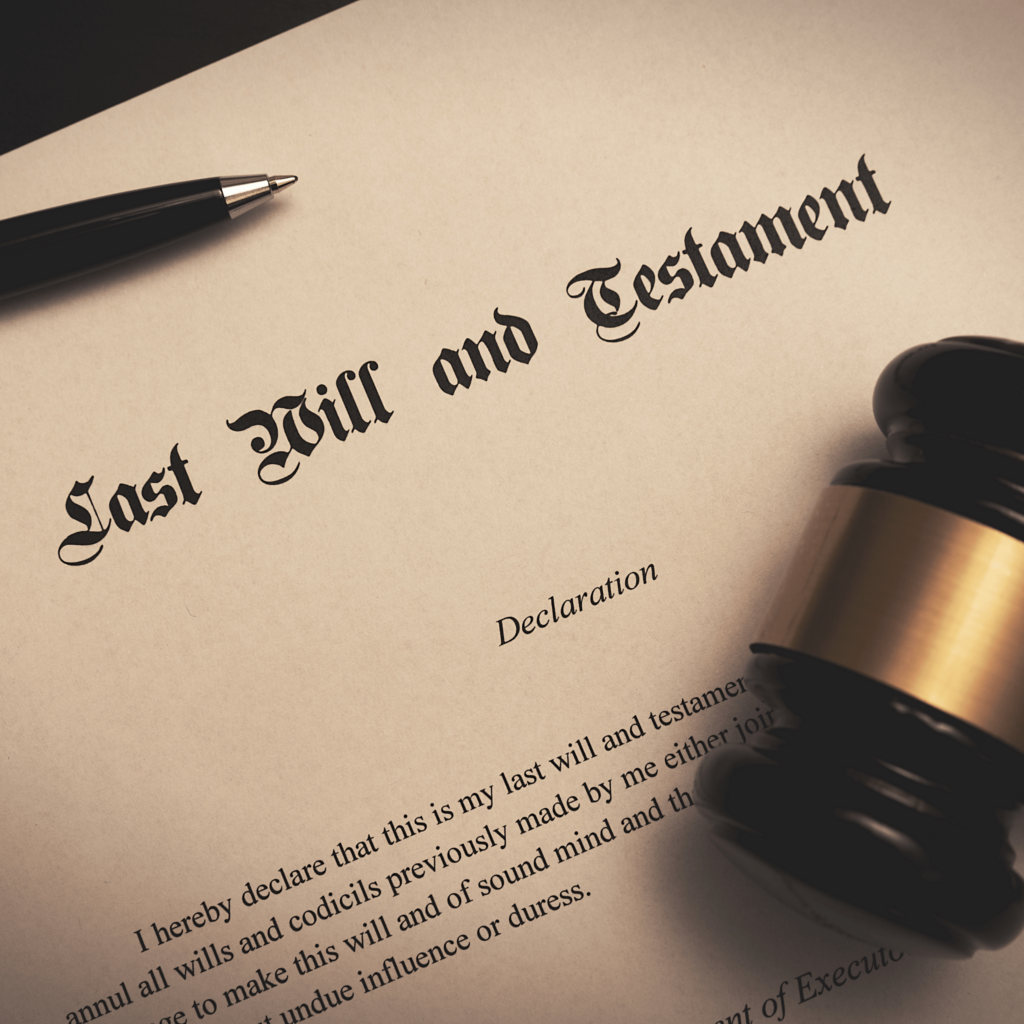Introduction – Know the Requirements for Will Writing in Singapore
Are you struggling to grasp the intricate details of composing a legally robust will in Singapore? It’s imperative to be aware that according to Singaporean law, even a handwritten will is a valid legal document, provided it adheres to specified requirements.
This extensive guide to writing a will in Singapore demystifies the frequently complicated endeavor of creating your final testament, elucidating essential steps and crucial legal considerations. By consulting this guide and potentially seeking advice from a family lawyer or the public trustee’s office, you can navigate an error-free pathway to ensure your assets are allocated in alignment with your preferences once you’ve passed away.
Key Takeaways
- Making a will in Singapore is crucial to ensure your assets are distributed according to your wishes after you pass away.
- A valid will must meet certain requirements, such as being in writing, signed by the testator who is at least 21 years old, and complying with the provisions of the Wills Act.
- It is important to include key components in your will, such as beneficiary designations, appointing an executor, a residuary clause for remaining assets, and CPF nomination, if applicable.
- You have the option to write a DIY will using online templates or hire a lawyer specializing in wills for assistance. Both options have pros and cons depending on complexity and personal preferences.

The Importance of Making a Will in Singapore
Crafting a last will and testament through proper will-writing in Singapore is essential for individuals aiming to confirm their assets are allocated as per their desires after their passing. Without a legitimate will, provisions under the Singapore Intestate Succession Act will determine the distribution of your estate, potentially in a manner not harmonious with your wishes.
Comprehending the significance of having a will is crucial, and it is vital to undertake the required steps to draft one that is accurate and adheres to legal standards, ensuring that the grant of probate can smoothly facilitate asset distribution to the next of kin and other surviving family members.
What is a Will?
A will is a document stipulating your desires regarding how your belongings—be it real or personal estate or insurance policies—are to be distributed upon your death. It acts as a directive for the allocation of your assets and finances. However, this document must be correctly formulated; otherwise, it won’t be valid.
For it to be accepted, it needs to be written and validated in the presence of two witnesses—who aren’t beneficiaries in your will—and the creator must be at least 21 years old, acting under their own volition without any coercion. Without a legally sound will, there exist predetermined legislations that will determine asset distribution based on familial relations.
Why Should I Make a Will?
Making a will is vital. It lets you decide who gets your assets after death. You can pick people or groups to get things like money, land, or items that you own. A will also makes it clear who should care for kids under 18 if both parents die before the child becomes an adult.
A will helps stop fights about these issues among family members and friends after your death as well.
What Happens If I Die Without Making a Will?
If you pass away without making a will, the law calls it dying “intestate.” In Singapore, rules from the Intestate Succession Act control how your goods and money are given out. This way may not be as you wish.
For example, if you have kids and no spouse, your kids get everything. If you’re married with parents, but no kids, your spouse and parents split everything half-and-half. This rule also applies if there’s no valid will in place.
If a Muslim person dies without a will in Singapore, different rules apply to them. The Syariah Court and Muslim law handle such cases. They decide who gets what based on their laws.
It’s important for all adults over 21 years old to make a legal plan for their assets.

Steps to Drafting a Flawless Will in Singapore
This ultimate guide provides a roadmap for crafting a flawless will in Singapore: Firstly, ensure you meet the requirements set out by the Singapore Wills Act for a valid will. Next, incorporate essential elements, such as specifying beneficiaries and appointing an executor.
While you may not always need a lawyer to write your will, understanding the legal process can be invaluable, especially when considering recommendations for drafting a clear and comprehensive document that effectively communicates your wishes upon death.
Requirements for a Valid Will
To have a valid will in Singapore, certain requirements must be met. These include:
- The will must be in writing.
- The person making the will (testator) must be at least 21.
- The testator’s signature should be at the bottom of the will.
- The will should comply with the provisions of the Wills Act to become legally binding in Singapore.
Key Components of a Will
Writing a will in Singapore involves several key components that traders and investors should be aware of. Here are the important elements to consider:
- Formalities: A will must meet certain formal requirements to be valid in Singapore. This includes being at least 21 years old, of sound mind, and signing the will in front of two witnesses who must also sign the document.
- Beneficiary Designations: In your will, you can specify who you want to inherit your assets and property after your death. This can include family members, friends, or charitable organizations.
- Executor Appointment: It is crucial to appoint an executor in your will who will handle the distribution of your assets according to your wishes. The executor should be someone trustworthy and capable of carrying out these responsibilities.
- Residuary Clause: A residuary clause is essential in a will as it specifies how any remaining assets should be distributed after all other specific gifts have been made.
- CPF Nomination: If you have Central Provident Fund (CPF) savings, you must make a CPF nomination in your will to designate who should receive these funds upon your demise.
Tips for Writing a Will
Here are some tips to help you write a will in Singapore:
- Identify all your assets and list them in your will, along with the beneficiaries who will receive them.
- Declare that the document is your last testament at the beginning of your will.
- Appoint an executor who will carry out your wishes and distribute your assets accordingly.
- Use templates available online as a guide when writing your will.
- Make sure to fulfill all the necessary requirements for a valid will, such as being of sound mind and over the age of 21.
- Consider seeking legal advice from a lawyer specializing in wills to ensure everything is done correctly.

Make Your Valid Will in Singapore: Getting Legal Assistance
If you’re unsure about how to write a will or want to ensure it is legally valid, getting legal assistance is highly recommended. Hiring a lawyer specializing in wills can help guide you through the process and provide expert advice tailored to your specific needs.
Don’t miss out on this crucial step – read on to learn more!
Cost of Hiring a Family Lawyer to Write a Will in Singapore
While hiring a lawyer in Singapore to write a will isn’t compulsory, doing so can offer assurance that your will is impeccable and legally valid, particularly considering the intricate nature of asset distribution and other legal considerations, including liability, for traders and investors.
The expense incurred for drafting a simple will with a lawyer typically lies between $200 to $400, representing a sensible investment for securing peace of mind.
Pros and Cons Of Writing Your Own Will
In Singapore, you have the option to draft your will without the need for a lawyer, enabling you to create your document with reference to provided guidelines, considering the aspects of inheritance.
Choosing to write your own will grants you the liberty to manage everything according to your preferences without incurring any costs. However, this approach comes with the peril of overlooking vital particulars or failing to satisfy legal stipulations.

Common Mistakes to Avoid When Writing a Will in Singapore
To ensure your will is error-free and legally valid, it’s crucial to avoid common mistakes. From neglecting to update your will after life changes to failing to include important clauses, these errors can have serious consequences.
Not Understanding Asset Distribution
One common mistake to avoid when writing a will in Singapore is distributing property that is not part of the estate. It is important to ensure that the assets being distributed are part of the estate.
Planning the distribution of assets ahead of time can help prevent confusion and legal expenses for the beneficiaries in the future. It is crucial to include a residuary clause in the will, which specifies how remaining assets should be distributed based on the testator’s wishes.
Seek professional guidance and assistance when writing a will in Singapore to meet all legal requirements and avoid potential mistakes.
Neglecting to Update Will After Life Changes
One common mistake to avoid when writing a will in Singapore is forgetting to update it after life changes. It’s important to review and revise your will whenever there are significant events such as marriage, divorce, the birth of children, or acquiring new assets.
By neglecting to update your will, you risk leaving outdated instructions that may not reflect your current wishes. So remember to regularly review and update your will to ensure it accurately reflects your intentions and protects the interests of your loved ones.
Failing to Include Important Clauses
Neglecting to incorporate essential clauses in a will can provoke confusion and potential legal conflicts. A frequent mistake is the omission of crucial stipulations, such as the appointment of an executor or guardian for underage children and a revocation clause to revoke previous wills.
The absence of these elements can spawn uncertainty regarding who will oversee the asset distribution or who will assume responsibility for the children. Additionally, overlooking debts requiring settlement from the estate before any distributions can lead to creditors asserting claims against the estate, subsequently inducing delays and complications for the beneficiaries, impacting insurance policies and personal property.
To circumvent these complications, engaging with a reputable wills lawyer for precise advice on the inclusion of pivotal clauses is imperative. They can guide you in structuring a document that stands against any potential revocation, ensuring the sanctity of your last wishes.
Not Informing Your Executor
One common mistake when writing a will in Singapore is not informing your executor. This means that you fail to communicate with the person you have chosen to carry out your wishes after you pass away.
It is crucial to provide your executor with all the necessary information they need, as this can prevent potential issues and complications. By keeping your executor informed, they will be able to locate and distribute your assets according to your wishes.
To ensure that everything goes smoothly, it is recommended to consult a lawyer who specializes in wills and estates. They can guide you on how best to inform and communicate with your chosen executor.
Not Having Proper Witnesses
One common mistake when writing a will in Singapore is not having proper witnesses. According to Singapore’s Wills Act, the signing of the will must be witnessed by two people who are not beneficiaries or spouses of beneficiaries.
These witnesses cannot have any personal interest in the contents of the will. It is important to ensure that you choose neutral and impartial individuals to act as witnesses to your will, as this helps to uphold its validity and ensures that your wishes are properly executed after your demise.
Conclusion
In conclusion, crafting a will in Singapore is pivotal to guarantee that your assets are disposed of according to your desires upon your passing, especially when minor children are involved. By comprehending the legal stipulations and adhering to the steps delineated in this guide, you can construct a seamless will with legal merit.
Whether you opt to acquire legal guidance or draft the will independently, allocating time to formulate a legitimate will is a significant component of estate planning. It’s crucial to write a will with due diligence, where witnesses must authenticate the document, ensuring its legal solidity.
Embark on scripting your will today to fortify the future for yourself and those you hold dear.












